Artist In:Depth - Datassette
For the next installment in the Renoise artist interview series, we managed to persuade highly productive Renaissance man Datassette to take some time out from his busy schedule to talk about the good old days, creative mod naming, business funk, psy trance, tinned tomatoes, wretched filth and everything in-between. And Renoise self-evidently. Plus some pretty unexpected influences...
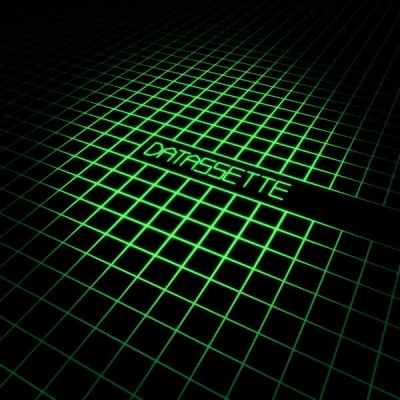
Who are you and where are you from?
I am a producer, programmer geek, design nerd, and occasional DJ attempting to do far too many things simultaneously, from the UK.
Taking your name from the classic Commodore tape drive, I'm guessing you must have been an avid C64 fan as a kid?
Yeah it was amazing at the time, and the SID chip still stands up as a fine synthesizer. I suppose the first ever real synth I ever heard 'in the flesh' was the SID. Previously, all the computer music I'd heard came from crappy monophonic beepers so hearing the title music to 'Midnight Resistance' for the first time blew my tiny mind to bits.
Do you ever use a real C64 for your musical endeavours?
A few of my older tracks feature the C64 cartridge 'Electrosound', others have samples from simple BASIC programs, and the Elektron SIDstation features in quite a few tunes. But in recent years generally I just stick to a choice handful of VSTs for the bleepy stuff.
I'm guessing you got into trackers that way and that Renoise was a natural progression?
I never actually used a tracker on the C64, none of my C64-owning school friends were aware of 'scene tools' back then. The first tracker I used was ProTracker on the Amiga in around 1994. I've got a drawer full of disks of utterly shit techno and breakbeat MODs from around that time, all with useful filenames like AAAA1B.MOD, or the unforgettable classics A1NEW7.MOD and NEWNEWNEW.MOD.
When my family got a 'mega turbo multimedia PC with twin speed CD-ROM' (66MHz whoo!) in around 1996 I somehow got hold of FastTracker II and promptly filled up the whopping 500MB harddrive with tons of crappy jungle tracks. Even after I'd moved out and gone to London I still had that crap old family PC running FT2 up until around 2001.
Around then I thought that in order to make 'proper music' you had to be using hardware, so I forfeited proper food for 7p tins of tomatoes with stale bread and spent my student loan on an AKAI sampler and some outboard FX. The only MIDI sequencer I could run on that old machine was Cubasis, which is a wretched piece of filth that nobody should ever have to use. The computer was barely functioning by then so I had to move the mouse pointer around with the numpad. Funtimes.
By around 2004, even though I was getting some quite good results from the hardware and a better computer running Cubase with VSTs and stuff, I still really missed FT2. I tried Skale and Buzz for a bit but they were unstable, and pretty much abandoned by their developers. I discovered Renoise in 2005 and it just instantly felt right, solid, a piece of software you could trust™.
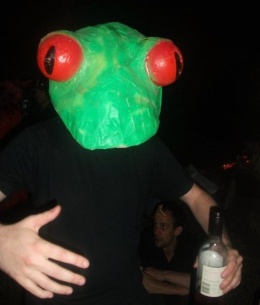
Do you produce everything in Renoise or do you only use it for certain aspects?
Renoise for all production. Then I usually do some light post-production in Audition, and use Ableton for live sets.
I suppose being a programmer I really appreciate that Renoise allows you to very quickly enter precisely what notes, drum hits or effect tweaks you want just by tapping out the rhythms on the qwerty keyboard. Trackers just feel more 'open', like all the parameters and innards of the synths, effects, and samples are exposed at all times, just waiting for you to mess with them. Sometimes when jamming with friends who use Logic or Ableton I get impatient - because although those programs have lots of good keyboard shortcuts to help you, you're still pretty much entering notes with a mouse or trackpad, and it's torture!
Any particular feature requests for us devs?
I'm one of those odd people who want a Piano Roll! Tracker patterns are great for most situations, but when you're working with complex chord progressions it's really helpful to have a visual overview of the notes, so you can easily see which inversions or transpositions might work without having to interpret all that note data in your head. A native arpeggiator would be amazing also!
Could you tell us a bit more about your musical career, according to Discogs, your first release came out in 2001, have you been continuously active since then?
Pretty much been making music of some sort since 1994. I'd probably go feral and end up living in a hedge if I stopped.
Do you find that your tastes have changed over the 15 or so years you've been making music?
It constantly shifts, I might think Prog Rock, or early Acid House, or Bach's harpsichord fugues, or 60s garage rock, or incredibly naff 80s library music, or Trad Jazz, or anything else is the best thing in the world ever on any particular day. I can't think of any single genre that doesn't have at least one track that I don't love - apart from Psytrance obviously. :P I've been fairly obsessed with drone music for the past couple of years though, I'd like to do a drone album at some point.
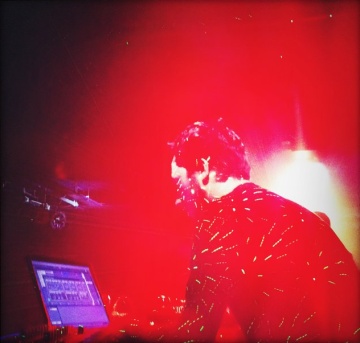
You recently played the UK's consistently most interesting electronic music festival, Bloc. How did that go?
Yeah it was great, the room was packed out and people seemed to be into it. I had a problem with a dodgy midi controller and had to miss out part of the set while I remapped FX to the laptop keyboard but it still sounded good. I doubt anyone noticed at that stage of the festival!
How do you perform your live gigs? Have you managed to work Renoise into it somehow?
Renoise wasn't really suitable for live work up until the last couple of versions, but it's probably time for me to give it a try now, I know lots of others have got some interesting setups going recently.
In more general terms, do you prefer working with software or hardware?
10 years ago I would've said 100% hardware, 5 years ago I would've said the opposite, now I reckon a healthy mixture of the two is definitely the way to go. I only have a couple of hardware synths myself, but jamming at friend's studios with huge piles of the things is ace. When you're standing at a synth, you're not tempted to look at Tweetdeck, or try out that new VST effect you downloaded, or mess around with your soundcard settings, you're just playing an instrument.
Very true. You have released some pretty mindbending mixtapes on your website over the years, not least the magnificently titled Businessfunk series.
Hehe, mindbending is a great compliment! I tend to get obsessed about some particular area of musical history or other, so once I feel like I've sufficiently exhausted it it's good to produce something to mark the end of that particular binge. With the Businessfunk stuff there is a lot of crap, I mean really awful stuff, so it's nice to distil all that into a nice densely packed thing that people can enjoy.
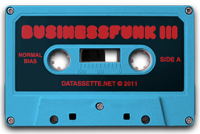
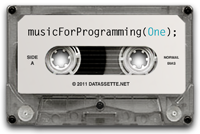
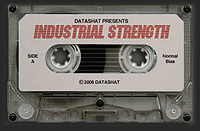
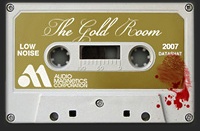
How do you feel about the whole digital versus vinyl versus CD debate that many people seem to spend an inordinate amount of time occupying themselves with?
Meh. Vinyl distortion / saturation is evocative of a certain era in music history, and it sounds really nice. It's an aesthetic, and that's all there is to it really. When I hear people say things like "digital has got no bass extension, vinyl sounds really warm and fat" I don't know how to respond because that's complete bollocks on so many levels! A sine wave is a sine wave is a sine wave.
It's true that vinyl can store frequencies up to something silly like 80kHz that only bats and chihuahuas can hear, but I don't think that's even what the argument is about. Hardcore vinyl purists have probably just heard too many digital DJs playing 128k mp3s ripped off MySpace gurgling horribly at the wrong speed through Ableton's 'Beats' timestretch mode through a crap soundcard.
I do love records though, and sometimes it's nice to go out DJing without a computer. Operating turntables is definitely more fun than hunching over a laptop, but as for sound quality you're just as likely to hear a badly pressed record as you are a poorly equipped digital DJ.
You seem to keep very busy judging by your site. Any tips to us eternal procrastinators who never seem to finish a track?
Be harsh on yourself, if something in the track isn't quite working just delete the whole channel and instruments completely, save it, forget about it and do something else for a while. Come back after a few days / weeks, if it still doesn't work - just scrap the whole thing! It doesn't matter, you probably learned something by failing.
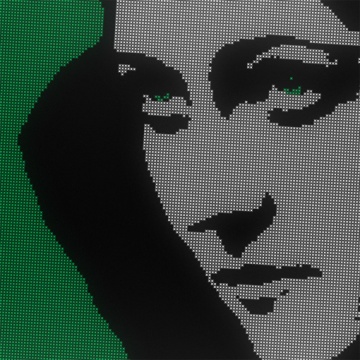
What do you do outside of music? What about all the nicely retro-looking artwork for your releases and your site? Is that your own work too?
I work as a freelance designer / developer at a web agency, I'm also working on Flash / Mobile games as a side project (slakinov.com). Making games pretty much involves everything I'm interested in - programming, design, music, so I love it.
Record sleeves are just another part of the music for me, and I like to be responsible for that too whenever possible.
On the games side, you're involved in something called Pixeljam Studios. How did that come about?
Pixeljam is a great pixel-style game company run by musician / programmer Miles Tilmann, pixel artist Rich Grillotti and musician Mark DeNardo. I put out some of Miles' music a couple of years ago on the record label project I'm involved with (handsette.net) and we've since worked on a couple of music commissions together. We're hoping to get involved with other game developers to do soundtracks - that would be the ultimate job for me!
I've actually just today launched my game Space Rubbish which comes with a soundtrack included (all made in Renoise of course). Along with Pixeljam, I think we're the first people to ever sell downloadable games as hidden bonus features inside MP3 albums in Bandcamp.
To finish off with, who would you say have been your biggest musical influences? Those artists that you keep coming back to over the years and that have meant a lot to you.
Too many to mention, but for sheer synth wizardry I'd say Isao Tomita. The stuff he was doing in the mid 70s still sounds incredible. Listen to his versions of Holst's 'The Planets' and Mussorgsky's 'Pictures At An Exhibition' - amazing stuff.
An interesting choice. Synth wizardry indeed. Thanks for taking the time, really enjoyed your answers!
Cheers!
- sharevari's blog
- Log in to post comments










10 comments